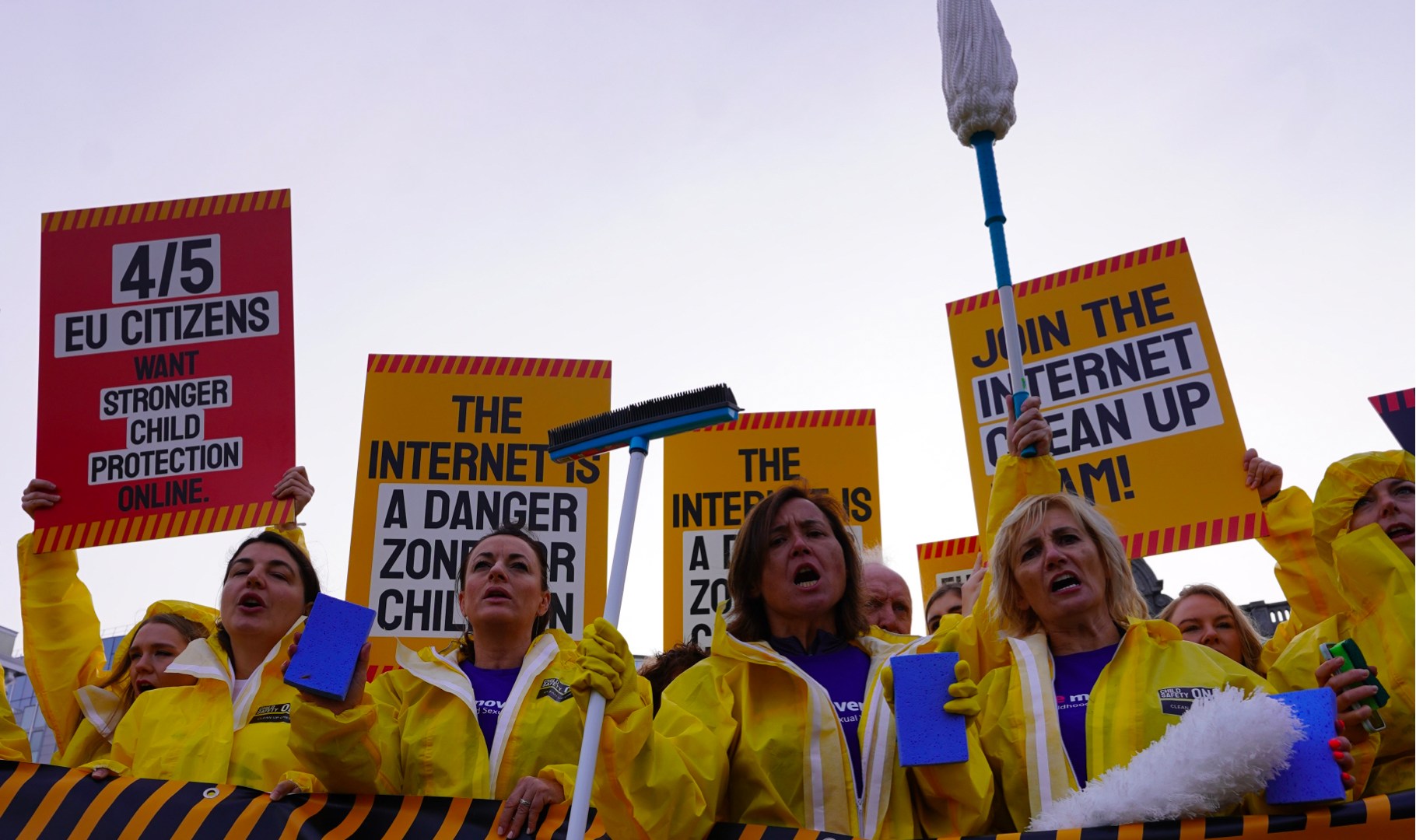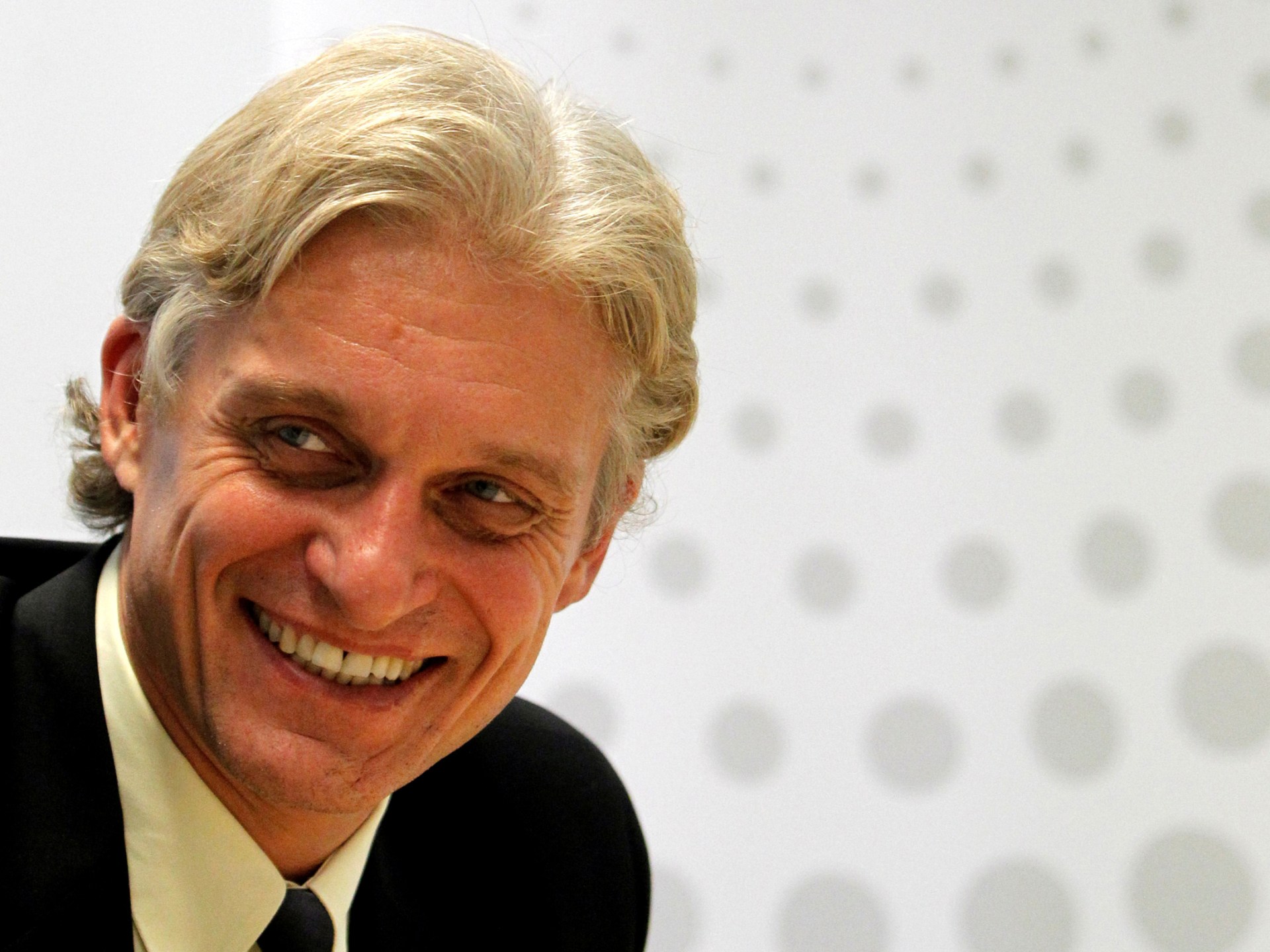Big Tech has allowed child sex abuse to become prolific online
The trauma that results from sexual violence in childhood never goes away. I know this because I was raped by an adult cousin when I was only five years old.
The abuse placed me into the dark hole of repressed memory – a well-known neurological mechanism allowing the brain of a little child to erase the unspeakable. Traumatic memories are not really forgotten, but put aside, waiting to surge in later life.
I went through my teenage years unconscious of the horrendous weight I was carrying. But somehow, it was as if my body knew what had happened: I ate very little food to control my body and emotions. I developed phobias, experienced nightmares, and struggled to control my anger. I lacked concentration at school and battled addictions. I couldn’t get into a trustful and loving relationship.
When I was 37 years old, memory of the rapes surged. I went through long therapeutic, judicial and personal trials to heal.
I am 51 years old now. I finally feel at peace. I am a child rights activist and co-founder of the Brave Movement. I work alongside survivors and allies to end childhood sexual violence.
One of the primary focuses of my activism today is to pressure Big Tech to take action against the dissemination of child sexual exploitation material on platforms used daily by millions of people around the world.
When I was abused in the 1970s, the internet didn’t exist. The sexual crimes which were inflicted on me by this cousin were not shared on any social media platform. So you may wonder why I see targeting tech companies as a priority.
Decades after I was raped, in the 1990s, I learned that this cousin had become crazy about the internet and would spend days on it. It sickens me to this day to think of the child sexual abuse material (CSAM) he may have been able to access and share online. It outrages me that technology has advanced so much since then, but safeguards for children have been left in its dust.
When I was abused, my pain was so great that my brain repressed it. Can you imagine the experiences of children whose abuse circulates on the internet?
Today, millions of children are trapped in an endless cycle of re-traumatisation.
In 2022 alone, the National Center for Missing & Exploited Children’s CyberTipline received more than 32 million reports of suspected child sexual exploitation material, coming from all over the world.
We are not talking about a small number of criminals in a corner of the dark web. Child sexual abuse online is prolific, and often perpetrated by members of a child’s circle of trust.
Enough is enough. It is time for decisive action to end this global crisis.
Social media, technology and gaming companies are putting profit over children’s safety and building products and services that allow childhood sexual violence to fester.
These technologies could be incredible forces for good, and sources of entertainment, connection and opportunity for everyone, including young people and children. But, just like those who make toys, cars, clothing and other widely used products, the creators of these technologies have a responsibility to build safeguards, checks and mechanisms to ensure that they do not cause harm to users.
Technology companies and the brains that built them have decades of experience in navigating the digital world. They have shown over and over again they can quickly and efficiently reinvent, renovate and adapt their products to make them more appealing, easier to use and more profitable.
So when they shrug their shoulders and say they don’t have the tools to detect, report and remove CSAM from their platforms – and to be clear, this includes “Category A” online CSAM including the rape of children and even newborns, which has doubled since 2020 – we know that they are simply prioritising their bottom line.
Tech companies do have the skills and resources to build the defences we need to protect children. What they don’t have is the will to invest in and deploy those capabilities.
But responsibility does not end with tech companies. What about governments and regulators? Why are they not doing something? What do they exist for, if not to protect citizens from unaccountable power, regulate businesses to prevent harm and exploitation, and uphold human rights?
As a French citizen and survivor, I find it unbearable that more than 60 percent of reported CSAM is hosted in the European Union.
European leaders can and must stop this. There is proposed legislation – EU Regulation to Prevent and Combat Child Sexual Abuse Offline and Online – that would make it mandatory for service providers to report child sexual abuse on their platforms and alert authorities so that predators can be brought to justice.
This is a unique opportunity to save millions of children from a lifetime of trauma. As the issue of child sexual violence online climbs the political agenda around the world, in the United Kingdom, United States, African Union and beyond, the EU has an opportunity to set a powerful precedent by voting to protect children and hold tech companies to account.
So we need European governments to be brave and bold. We need them to stand up taller in the face of doubters, detractors and disruptors. This is why, as the proposal reaches critical stages of debate in the European Parliament, Brave Movement survivors, youth activists and allies are taking collective action in Brussels and across Europe.
We are in Brussels today to ensure children and survivors are put first. We will not allow legislation to be watered down or have its credibility tainted by Big Tech bullies and their supporters.
When I think about what I suffered and the years of trauma I have overcome, the thing I keep coming back to is: “When I was raped, the internet did not exist.”
I know survivors who were sexually abused and then suffered the dissemination of that abuse on the internet. One little girl was raped by her father over several years. Images of these crimes have circulated the internet more than 100,000 times. She is now in her 30s and hardly leaves her home because she is afraid that people will recognise her on the streets.
It is for these children and survivors that I’m in Brussels with my survivor sisters and brothers. We are here to tell the members of the European Parliament and the EU member states: “We are watching you. Don’t fail us, and don’t fail the children.”
The views expressed in this article are the author’s own and do not necessarily reflect Al Jazeera’s editorial stance.




